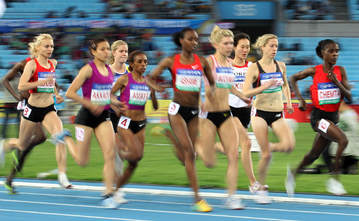 In the book Outliers, Malcolm Gladwell made famous the statistic about practicing 10,000 total hours to become world-class at anything. But what he didn’t highlight is that there’s a limit as to how much disciplined, focused, concentrated practice one can perform in in one day. 10,000 hours of practice makes you a pro. But how many hours should you do at a time? Research cited in the article “A Better Way To Work” estimates that limit to be of approximately four hours per day. And, not only is there a limit to how much you can practice each day, there’s actually a negative decline if you consistently over-perform. In other words, there’s a point where you put in so many hours that you become burned out, discouraged, and decrease effectiveness. This probably makes sense to you from a logical standpoint, but how often do we dismiss the importance of sleep to perform harder, better or faster? Research in the article states that in addition to your 10,000 hours of practice, you need 12,500 hours of deliberate rest, and 30,000 of sleep (including naps). The author also references studies that were conducted with violin students at one university. The study analyzed activity and rest patterns from the best students compared to the average students. What they found is that the best students had the following in common:
Today’s society praises people for working long hours, we pride ourselves with how busy we are, and we are often rewarded for going the extra mile. But very few organizations deliberately focus on rest. Google stands out as one company that embraces downtime and rest. I had the pleasure of taking a tour of the company in 2010 and I distinctly remember seeing egg-shaped nap pods (which were basically mini beds) placed throughout the floor. OK, I thought, it’s a nice idea but I’m sure no one uses them. To my surprise, they were being used frequently throughout the day and, even more surprisingly, most of the people I observed using them were managers! What?! I had never seen anything like that before. The managers set the tone of the culture. Google embraced the benefits of rest (using these nap pods among many other perks) resulting in an increase in productivity, innovation, and positive energy from their staff. Researchers have been studying the benefits of rest for a long time. Another “oldie but goodie” book in the Organization Development field is Power of Full Engagement Managing Energy, Not Time, Is the Key to High Performance and Personal Renewal by Jim Loehr and Tony Schwartz. Through research and experiments, these authors prove how critical downtime is throughout the day. In one experiment, Loehr and Schwartz attached EKGs to both professional tennis players and average tennis players. What they found is that the average players kept their heart rates high throughout a match. However, the professional players found short periods of time to lower their heart rate throughout a match. Whether it was when they retrieved a ball or walked back to their position from the net, they found small moments to slow their heart rates down and give their body a quick rest. So, yes, it’s true, you need 10,000 hours of practice to achieve world-class success. AND… you also need over four times that in rest and sleep, at appropriate intervals. We can’t all be fortunate to work for an employer that actively provides opportunities for rest and rejuvenation. However, we can take it upon ourselves to find ways to work differently. Don’t rely on the two weeks of vacation you take once a year (if you’re lucky!), think about ways to incorporate rest and downtime everyday throughout your day. Here are some realistic tips regardless of your industry or location, that may help you get started:
These may seem insignificant but these little moments of downtime will actually give you more energy throughout the day. What works for you? Leave a comment and let us know! I encourage you to experiment with deliberate rest to help you become more productive. Let us know how it works.
0 Comments
Your comment will be posted after it is approved.
Leave a Reply. |
AuthorLaura Mendelow |
|
|
©2020. All Rights Reserved. Mendelow Consulting Group, LLC.

